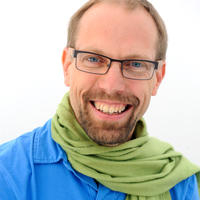
Curriculum Vitae
dbraband@wellesley.edu
(781) 283-3056
Geosciences
B.S., M.A., Binghamton University; Ph.D., Brown University
Daniel J. Brabander
Professor of GeosciencesResearch interests: GeoHealth, biogeochemistry, environmental geochemistry, research and collaborative project-based learning to support inclusive excellence in STEM education
“We must rid ourselves of the notion that careful study of a problem based on a narrow range of issues is the only kind of work to be taken seriously, while integrative thinking is relegated to cocktail party conversations” (Gell-Mann, 2010).
Fostering integration as a way of thinking. Brabander offers “Big Idea” courses that introduce systems thinking in applied and messy problem spaces. Course goals are centered on taking a crude look at the whole to determine a path of inquiry. Approach focuses on transdisciplinary theories (e.g., see open syllabus project: paradigms) while fostering intrinsic motivation through project-based collaborative learning. Deliverables are aimed at de novo authorship of scientific narratives. Three recent courses have been designed with these goals as a framework: (1) SUST220(Wellesley) AHSE2199A/SCI2099A (Olin) Paradigms, Predictions, and Joules: A Historical and Scientific Approach to Energy and the Environment (2) GEOS/ES 201 (Wellesley) Environmental, Health, and Sustainability Sciences (3) ASTR/GEOS 120 (Wellesley) Planetary Habitability: Past, Present, and Future. These applied alternative on-ramps into STEM have attracted a higher percentage of both URM and first generation students. In 2010, Brabander was awarded the Wellesley College’s Pinanski Prize for Excellence in Teaching.
Integration leading to new disciplines. Informed by research experiences at both Parsons Lab at MIT (postdoc) and Harvard School of Public Health (visiting scientist), Brabander’s current research is at the intersection of environmental health and medical geosciences and has helped shape and define an emergent new discipline: “geohealth.”
Professor Brabander’s research team comprises undergraduates learning science by doing science, community scientists, and not-for-profit organizations. Projects have been featured in numerous media outlets including NPR, ABC news, the Boston Globe, and Time Magazine. His current research focus is environmental geochemistry, geohealth linked with fate and transport of legacy metals, and sustainable urban agriculture.
Recent publications (* undergraduate co-author)
- Hayhow C. M.*, Brabander D., Jim R., Lively M., Filippelli G.M. (2021) Addressing the need for just GeoHealth engagement: Solving models for actionable research that transform communities. AGU GeoHealth 5 (12) 25 November 2021 https://doi.org/10.1029/
2021GH000496 - Gallagher C.L.*, Ottgen H.L.*, Brabander D.J. (2020) Beyond community gardens: A participatory research study evaluating nutrient and lead profiles of urban harvested fruit. Elementa: Science of the Anthropocene (2020) 8 (1): 004. https://doi.org/10.1525/
elementa.2020.004 - Smith J. P., Brabander D. J., Panek, L. A., Besancon J. R. (2019) Enrichment of potentially toxic elements in the fine fraction of soils from Iraq and Kuwait. Journal of Soils and Sediments. https://doi.org/10.1007/s11368-019-02286-7
- Howard M. *, Plotkin A. *, McClure A. R.* Klepac-Ceraj V., Griffith A., Brabander D., Jones K. (2018) Comfrey mulch enriches soil, but does not improve an indicator crop within one season. International Journal of Plant and Soil 22: (2) 1-9. doi : 10.9734/IJPSS/2018/40403
- Monecke K., McCarthy F. G., Hubeny B., Ebel J. E., Brabander D. J., Kielb S., Howey E.*, Janigian G.*, Pentesco J. (2018) The 1755 Cape Ann earthquake recorded in lake sediments of eastern New England: An interdisciplinary paleoseismic approach. Seismological Research Letters. https://doi.org/10.1785/0220170220
- Sharp, R. M. *, Brabander, D. J. (2017). Lead (Pb) bioaccessibility and mobility assessment of urban soils and composts: Fingerprinting sources and refining risks to support urban agriculture. GeoHealth, 1, 333–345. https://doi.org/10.1002/2017GH000093
- Fitzstevens M.G. *, Sharp, R. M. *, Brabander D. J. (2017) Biogeochemical characterization of municipal compost to support urban agriculture and limit childhood lead exposure from resuspended urban soils. Elem Sci Anth. 2017; 5:51. doi http://doi.org/10.1525/elementa.238
